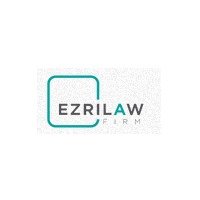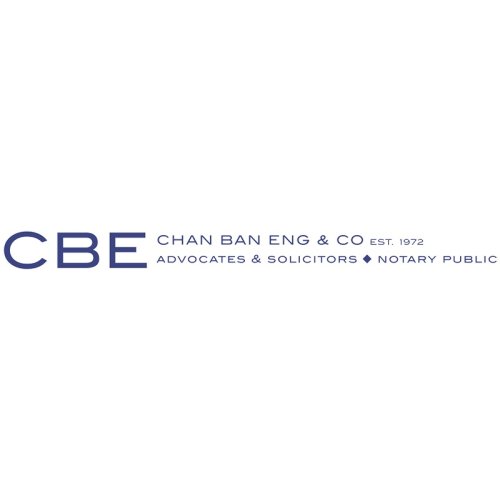Best Land Use & Zoning Lawyers in George Town
Share your needs with us, get contacted by law firms.
Free. Takes 2 min.
Free Guide to Hiring a Real Estate Lawyer
List of the best lawyers in George Town, Malaysia
About Land Use & Zoning Law in George Town, Malaysia
Land use and zoning laws in George Town, Malaysia, are designed to regulate the development and utilization of land within the city. These laws ensure that residential, commercial, industrial, and recreational areas are appropriately planned to create a balanced urban environment that promotes sustainable growth, protects heritage sites, and enhances the quality of life for residents. Local zoning regulations and policies are heavily influenced by national land management legislation as well as state guidelines established by the Penang state government. Given George Town’s status as a UNESCO World Heritage site, these laws also aim to preserve the city's historical and cultural assets.
Why You May Need a Lawyer
Engaging with land use and zoning law can be complex, so there are various situations where you might require legal assistance, such as:
- Understanding local zoning codes and regulations when purchasing property.
- Applying for zoning changes or variances to develop or alter property use.
- Resolving disputes over property boundaries or land use rights.
- Managing environmental impact assessments and compliance.
- Protecting heritage sites during construction or renovation projects.
- Navigating commercial development permits and licenses.
- Compliance with national and local land development policies.
- Negotiating land lease agreements.
Local Laws Overview
Key aspects of land use and zoning laws in George Town include:
- Penang Structure Plan: This is the overarching plan guiding development in the state, ensuring sustainable growth and balance between urban and rural areas.
- George Town Special Area Plan: Specific to managing the city's status as a World Heritage site, it outlines conservation and development guidelines.
- Zoning Ordinances: Zoning classifications, such as residential, commercial, industrial, and mixed-use, dictate permissible activities and developments in various areas.
- Building Control Laws: These laws regulate construction activities to ensure safety, structural integrity, and compliance with urban planning goals.
- Environmental Regulations: Environmental laws ensure that land development does not compromise local ecosystems, particularly in sensitive areas.
Frequently Asked Questions
What is zoning, and how does it affect property use?
Zoning is a system of land use regulation that designates specific areas for different types of development, such as residential, commercial, or industrial. It affects what activities can be conducted on a property and what structures can be built.
Can I change the zoning of my property?
Yes, property owners can apply for a zoning change or variance through the local municipal council. The process involves submitting an application and providing a rationale for the change, often accompanied by public consultations.
How do heritage conservation laws impact property development in George Town?
Heritage conservation laws in George Town protect historical buildings and sites, restricting alterations that could affect their integrity. Developers must adhere to guidelines that preserve the city's cultural heritage.
What permits do I need to build a new structure in George Town?
Building any new structure typically requires planning permission and a building permit from the local authority. Additional permits may be needed based on the nature and location of the development.
What should I do if I have a land use dispute with a neighbor?
If you have a dispute over land use or boundaries, it's often best to try amicable negotiations. If that fails, seeking legal advice or mediation through local authorities or the courts would be the next steps.
What are the penalties for violating zoning laws?
Penalties for violating zoning laws can include fines, orders to cease operations, or mandates to demolish unauthorized structures. Severe violations can lead to legal actions by local authorities.
Are there incentives for sustainable development in George Town?
The government and local municipalities may offer incentives for developments that meet specific sustainability criteria, including tax breaks, grants, or expedited permit processes.
How does environmental regulation impact new developments?
Environmental regulations require developers to conduct impact assessments and comply with standards designed to protect air, water, and land quality, especially in ecologically sensitive zones.
What role do community associations play in zoning decisions?
Community associations often have a consultative role in zoning decisions, voicing local concerns and interests during public hearings and consultations.
How do I inquire about the zoning restrictions of a particular property?
To inquire about zoning restrictions, you can visit the local municipal planning office or check their official website, where zoning maps and ordinances are usually available.
Additional Resources
For further assistance, consider these resources:
- Penang State Government: Offers resources and contact information for local regulations.
- MPPP (Penang Island City Council): Provides information and services related to zoning and land use on Penang Island.
- Department of Town and Country Planning, Penang: An essential resource for land-use planning and development policies.
- Heritage Conservation Committee: Offers guidance on preserving George Town's heritage sites.
Next Steps
If you require legal assistance with land use and zoning in George Town, consider the following steps:
- Consult with a local attorney who specializes in land use and zoning law.
- Contact the local municipal planning office for guidance on procedures and requirements.
- Attend informational seminars or workshops offered by legal aid organizations or community groups.
- Explore mediation services for dispute resolution to avoid litigation.
Lawzana helps you find the best lawyers and law firms in George Town through a curated and pre-screened list of qualified legal professionals. Our platform offers rankings and detailed profiles of attorneys and law firms, allowing you to compare based on practice areas, including Land Use & Zoning, experience, and client feedback.
Each profile includes a description of the firm's areas of practice, client reviews, team members and partners, year of establishment, spoken languages, office locations, contact information, social media presence, and any published articles or resources. Most firms on our platform speak English and are experienced in both local and international legal matters.
Get a quote from top-rated law firms in George Town, Malaysia — quickly, securely, and without unnecessary hassle.
Disclaimer:
The information provided on this page is for general informational purposes only and does not constitute legal advice. While we strive to ensure the accuracy and relevance of the content, legal information may change over time, and interpretations of the law can vary. You should always consult with a qualified legal professional for advice specific to your situation.
We disclaim all liability for actions taken or not taken based on the content of this page. If you believe any information is incorrect or outdated, please contact us, and we will review and update it where appropriate.
















